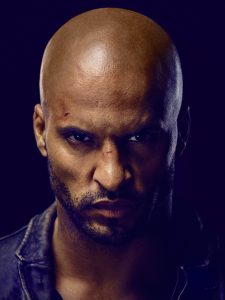
Starz’ American Gods is, at its core, an exploration of belief and how our faith shapes the world. The series originated as a novel written by Sandman writer Neil Gaiman and has been adapted for TV by Hannibal showrunner Bryan Fuller and Logan writer Michael Green. Among genre fans, this creative team has an incredible pedigree. Thus, one would expect American Gods to be an exciting and explosive example of peak TV right out of the gates. Unfortunately, however, the first four episodes of this eight episode season reflect a show that is uncertain about how to effectively adapt its source material.
American Gods focuses around Shadow Moon (Ricky Whittle), a con man who has just been released from prison for aggravated assault when he comes across an old huckster named Wednesday (Ian McShane). Shadow, aimless and adrift after the sudden death of his wife, Laura, takes a job with the charismatic elderly man and is quickly drawn into a world beyond his understanding. As Wednesday’s bodyguard and self-described “errand boy,” Shadow is unwittingly brought into the center of a war between the old gods of history and an upstart group of new gods who represent modern pillars of society such as media and technology.
While it is unsurprising that the American Gods TV show and the novel share the same premise, it’s disheartening that the show’s plot hews so closely to the book’s. While the source material has a rich world and many fascinating ideas to play with, it is also an incredibly internal story. Very little actually happens throughout most of the novel—instead, the focus is on Gaiman’s smooth prose and the rich interior lives of the story’s many characters. Stripped of these elements, what you’re left with is a long and often aimless road trip novel broken up by an eclectic assortment of “Somewhere in America” short stories about the lives that the old gods have carved for themselves in the new world after being brought to America by their worshippers. And that’s more or less what Starz’ American Gods has shown itself to be. It is a show with lots of ideas but no immediate conflict through which to channel them. The broad concept of Wednesday’s war remains undefined halfway through the season and the new gods only show up a handful of times—not enough to give a sense of urgency to the season at hand.
It is not a sin for a TV show to be slow-paced and meditative. Mad Men was both, yet highly compelling throughout its eight-year run. However, the reason why the show was so enthralling was because every week’s episode had a sense of conflict to it. Every episode was a chapter in the greater story, yet also told a complete story in of itself. Alan Sepinwall recently wrote an article that bemoans the tendency for many modern TV shows—especially Netflix originals—to treat their seasons like one long movie instead of episodic units. And that’s what American Gods does. Taken in sum, the series is still messy, but ultimately holds together. Taken individually though, each episode feels like what Sepinwall calls an “amorphous hour of…stuff.” Each hour’s collection of road trip scenes and “Somewhere in America” vignettes never come together to say anything particularly coherent. Thus, not only does the show lack proper plotting, but it also lacks a certain amount of thematic depth.
The show’s thematic superficiality is heartbreaking, given how one could easily imagine Fuller and Green taking the core ideas of Gaiman’s novel and pushing them in a new direction better suited for TV in the modern era. It has been 16 years since the book was originally released. In that time, the world has changed dramatically. The internet is the heart of our world. Smartphones are ubiquitous. Trust in the media has taken a nosedive. While Starz’ American Gods does nod to the passage of time between its release and the novel’s, the show might have been even more compelling had it used these new ideas to push Gaiman’s original musings further.
That said, in spite of all these massive problems, there is a lot to love about American Gods. As expected given his work on Hannibal, Bryan Fuller lends the show with a memorably intense visual aesthetic. The color palette in each scene is pushed to maximize contrast. The harsh lighting used throughout most scenes only intensifies this effect. The camerawork in this show excels at driving the core emotion of each scene to the forefront of the viewer’s mind—whether that means a series of closeups on boxes and household trinkets as a grieving Shadow packs Laura’s old things away or a grand exploration of a universe inside a god.
Most of the casting in this show is impeccable as well. Ricky Whittle perfectly captures Shadow’s external physicality and internal vulnerability. Ian McShane oozes charm as Wednesday—he steals every scene he appears in to the point where the viewer can’t help but smile no matter how morally repugnant his actions may be. Emily Browning gets a chance to showcase a solid amount of range as Laura in the series’ best and most focused episode; that chapter is dedicated to providing her with more backstory and motivation than she was ever given in the novel and demonstrates what American Gods could be at its apex.
Even most of the bit players are fascinating to watch. Peter Stormare’s Czernobog, Bruce Langley’s Technical Boy, and Pablo Schreiber’s Mad Sweeney are particularly strong in their respective roles. If I had to point to a weak spot, I would say that Betty Gilpin’s turn as Audrey Burton, Laura’s best friend, is far too overwrought in the first episode. However, when she appears again in a later episode, even her performance greatly improves.
The visual effects in Starz’ American Gods are a little more hit-or-miss than the casting or the general aesthetic, though. While the show’s over-exaggerated color grading can cover up a certain amount of bad CGI, some of the visuals in the pilot, which was the only one of the screeners designated as complete by Starz, look too faked to ignore. That’s strange given how much of the effects work is genuinely great. The rainbow spider who appears during one episode looks incredible. Shadow’s dreamscapes and the starlit galaxies we’re shown are simply breathtaking. Every time blood is spilled on this show it has the visceral intensity of Zack Snyder’s 300 or a Quentin Tarantino movie. One has to wonder whether the less-polished effects are due to a lack of money or a lack of time.
Overall, Starz’ American Gods is a show that’s easy to recommend but harder to love. The show plays with a lot of ideas that are more meaningful now than ever. It’s a stylistically polished and wonderfully acted take on Neil Gaiman’s classic award-winning novel. The first four episodes have planted the seeds for something potentially profound. However, while the show shares many strengths with Gaiman’s book, it shares its weaknesses as well. It’s an often aimless collection of character moments and short stories juxtaposed against unrelated stories. The story’s central conflict is so vague it might as well be non-existent.
Ultimately though, like Gaiman’s original story, Starz’ American Gods has the potential to be far greater than the sum of its parts. We just have to have faith that it will be.
American Gods begins on April 30. Four episodes from the eight episode season were watched for review.
Alexander Lu is available @waxenwings.


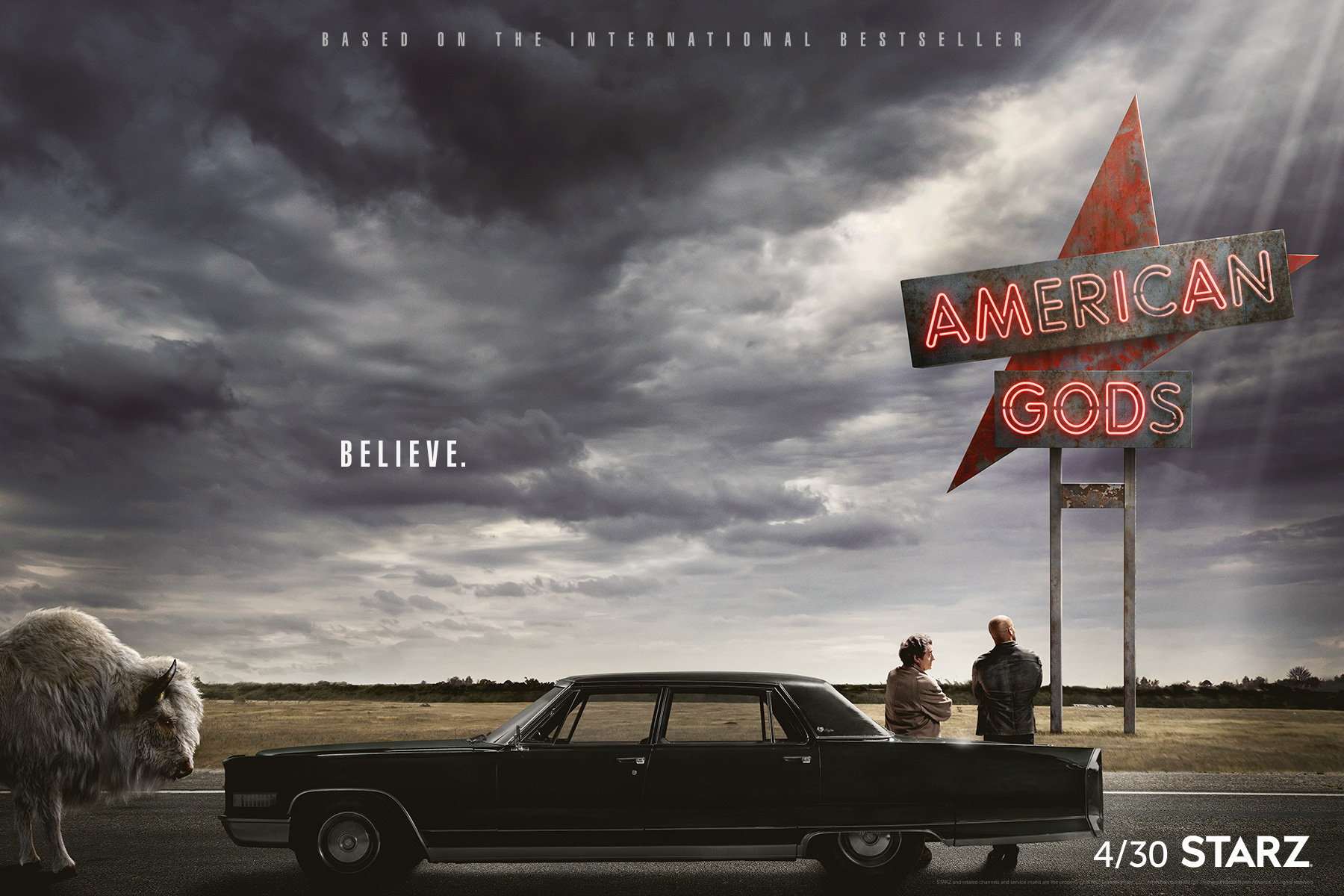
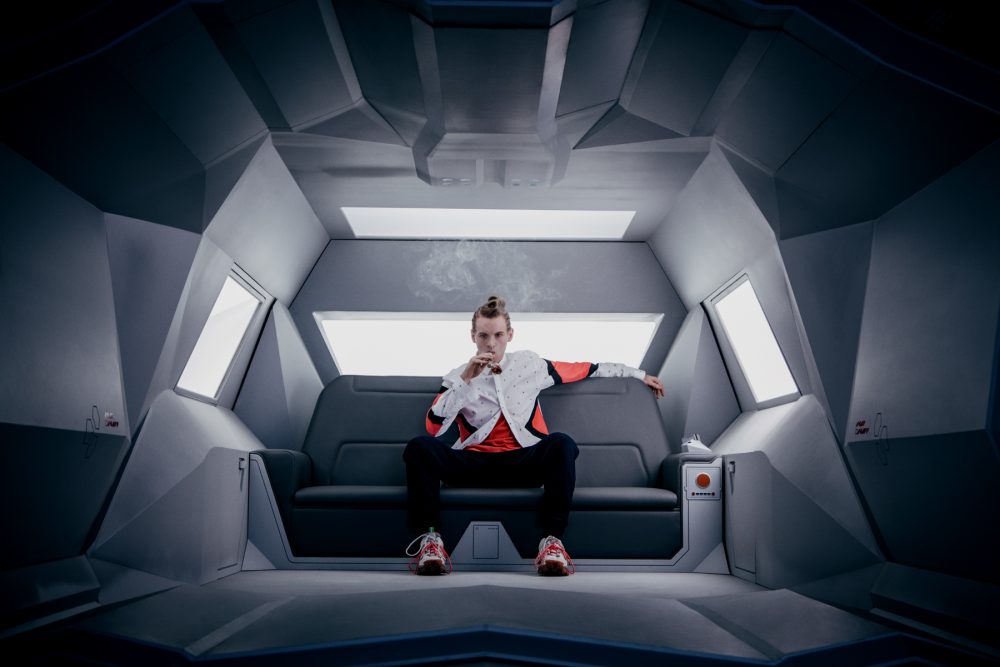
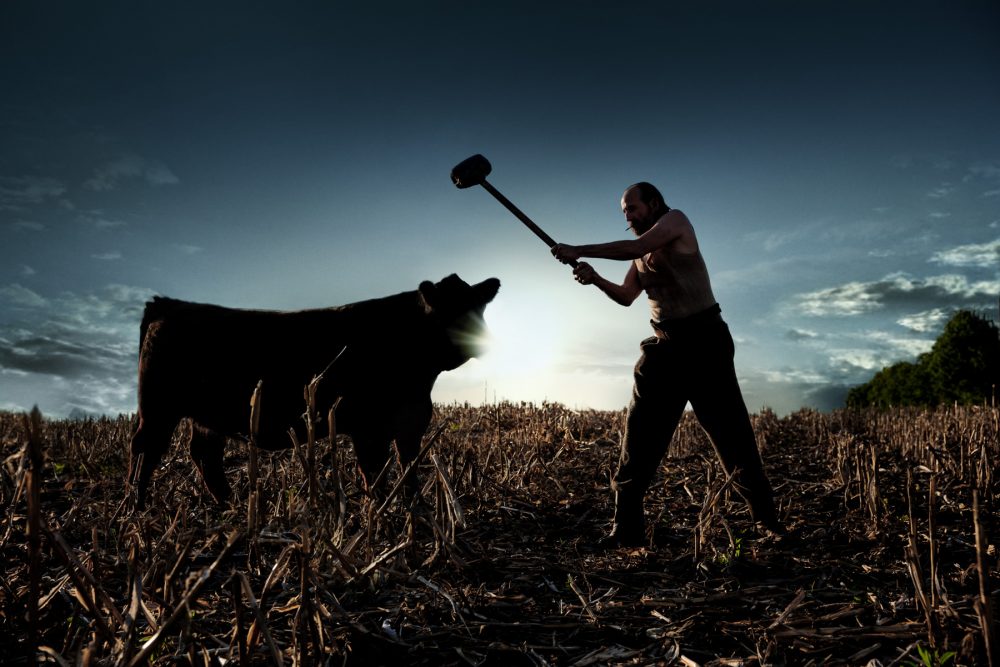
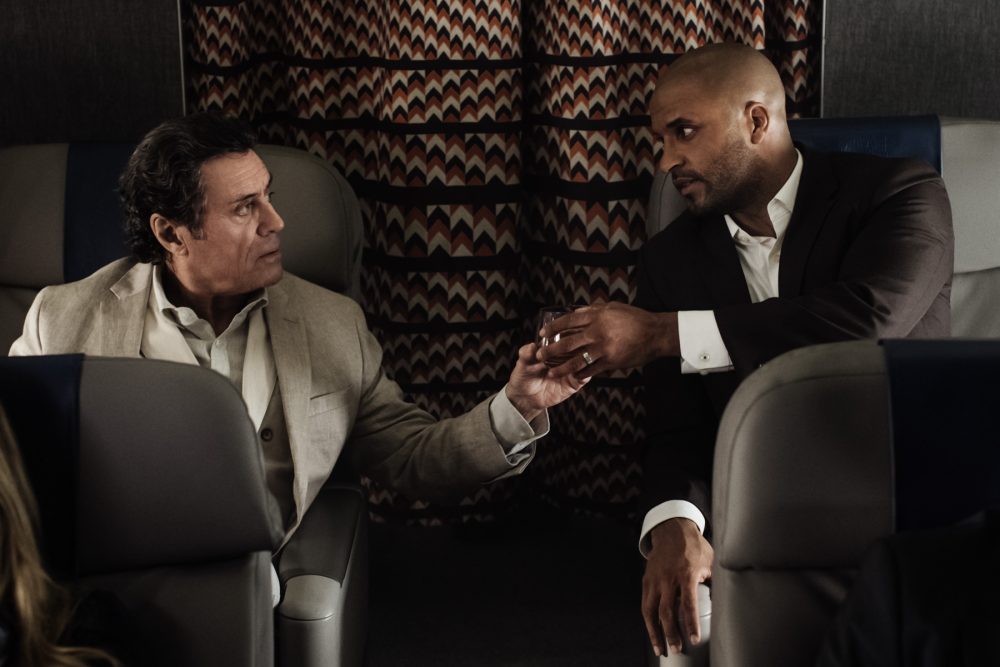
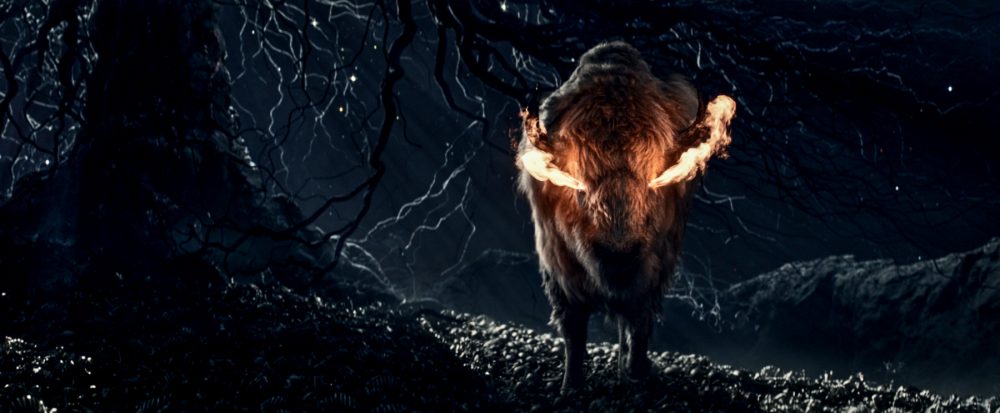

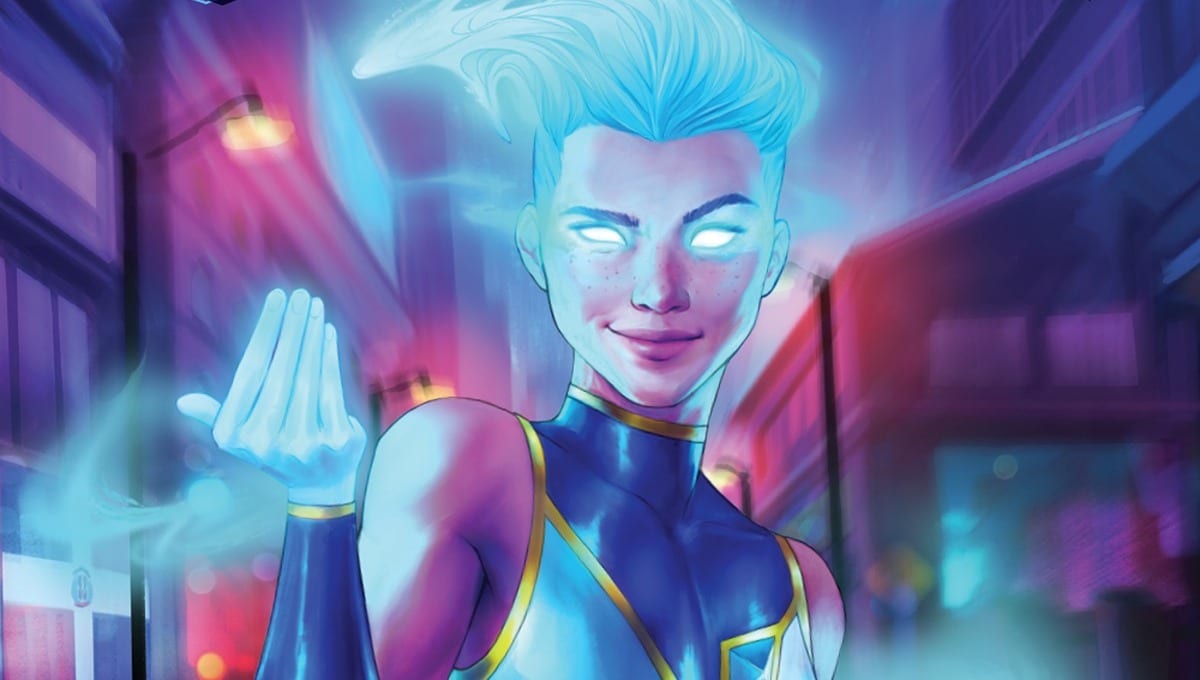
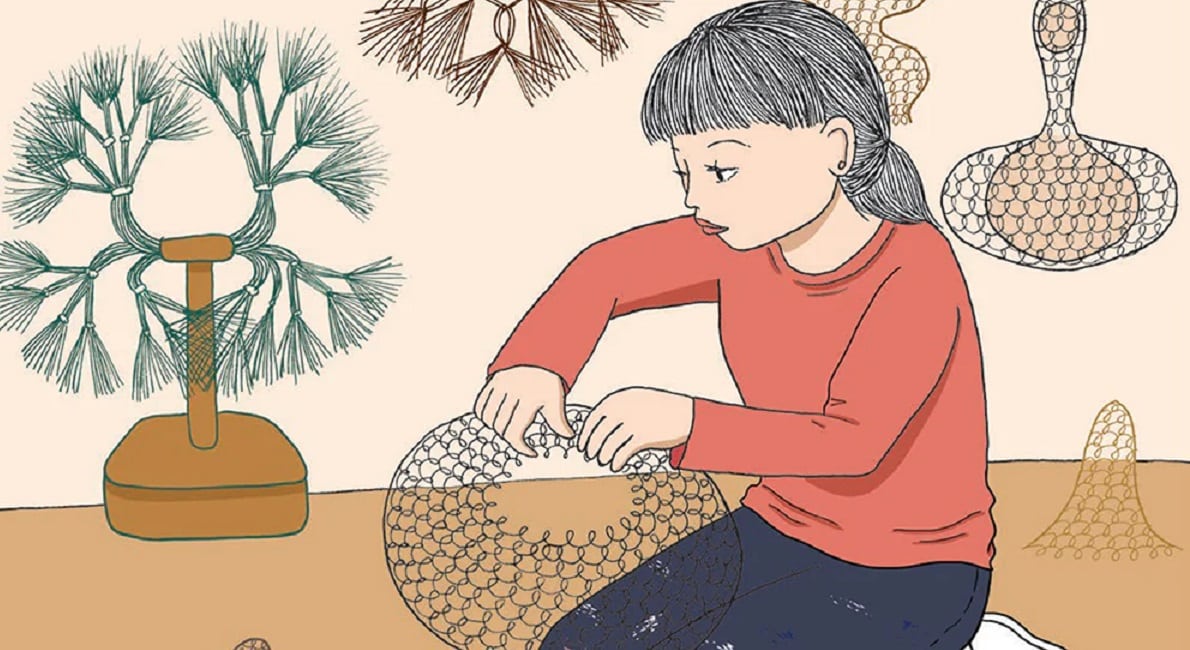


I tried reading American Gods when it was first published but I gave up after 100 pages because literally nothing happens. The main character just wanders around meeting people. That’s not a plot. If an author wants to be in love with his own prose, that’s up to him but he needs to deliver something more than that. The description of the first 4 episodes of the mini-series is exactly what I was afraid of. Nothing to see here.
American Gods was a fantastic book. This casting isn’t so hot but the worst is Wednesday, who is Odin looking like an elderly mafioso and definitely not Odin. Anthony Hopkins would have been perfect. Who picked this guy?
Thus far, two commenters and the writer of this piece have missed the point entirely…
Comments are closed.